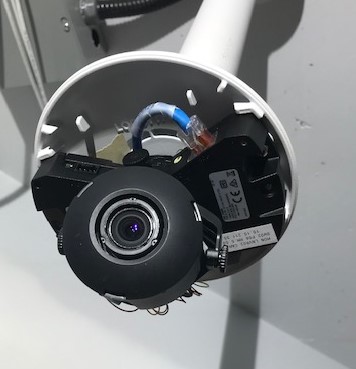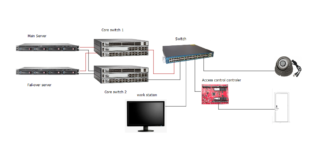
The camera is the essential element in video surveillance. It determines the performance of the system. The system you want to have will also determine the cameras you have to install.
In this article, I will tell you about video surveillance cameras and all that characterizes them.
The resolution of a camera
The resolution is the pixel density of the image. It is expressed in Dot per inch ( pdi )
Then, it expresses the quality of the camera image. It is an indicator of the camera’s ability to provide details in an image.
The more resolution a camera has. the more detail its image has.
Moreover, not confuse it with the definition of the image, which is the number of pixels in an image.
The brightness of a camera
It determines the amount of light needed for a camera to function. The unit of its measurement is LUX. For example: 0 LUX is total darkness. 0.02 LUX corresponds to a dark night. 0.5 LUX corresponds to a full moon night. Hence, the need to know the brightness of the area to monitor in order to choose the most suitable camera.
Types of video surveillance cameras
Fixed or motorized ?
- Fixed camera
These are cameras fixed and adjusted to cover a specific area.
- Camera PTZ
These cameras can move to cover different areas. Pan. Tilt. Zoom, which means that we can zoom. Move up and down. And right or left.
Wired or wireless ?
- Wired
It transmits data by wire. It could be IP or analog.
- Wireless
A camera sends data by in the form of wireless radio signals. A receiver, picks up its signals and sends them to a monitor and / or a recorder. The receiver and the recorder are connected by cable (coaxial or IP).
IP or analog ?
- Analog
These are cameras connected by a coaxial cable. They are not suitable in internet technology. So, to be able to connect them in the Internet network, it is necessary to put converters. However, they require an independent power source.
- IP cameras
These are the new generation. Integrate the Internet network. Additionally, no need to external power source because the power goes through same cable as the same image. (The technology of transmitting current through the same data cable is called POE).
Day or night ?
- Day / night cameras
This type of camera produces color images during the day. Then, at night it automatically adjusts to give black and white images.
- Night vision camera
These infrared cameras can work in a low light environment.
They cannot operate in total darkness.
Thermal Camera
They are able to collect heat radiation emitted by objects. It produces images based on the differences between these radiations.
Learn more about thermal cameras
LPR Camera (License Plate Recognition)
These are cameras that scan the license plates of cars. As a result, we can find this type of camera in parking lots. In addition, some police vehicles are also equipped with LPR cameras.
